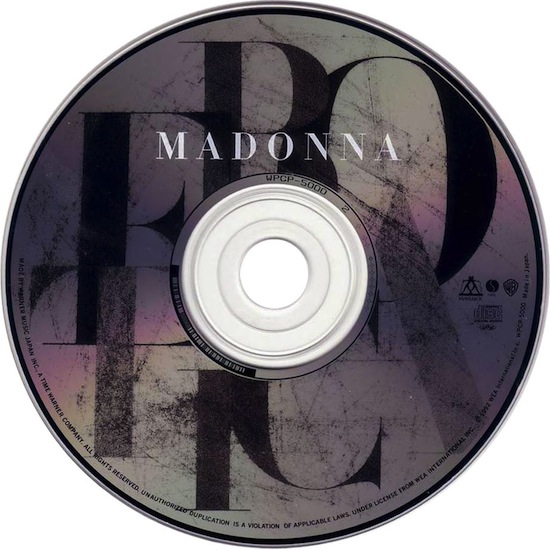Tag Archives: Bad Girl
Today in Madonna History: January 18, 1989
On January 18 1989, Madonna purchased a $3 million estate in the Hollywood Hills, Hollywood, California.
Madonna bought the gated three-bedroom house from Allen Questrom, the former president and CEO of Neiman Marcus, and sold it for $2 million during California’s 1994 real estate slump.
In the music video for Bad Girl Madonna played the character “Louise Oriole” (Madonna’s middle name is Louise and Oriole is a street she once lived on). The house she purchased in 1989 is located at 9045 Oriole Way, Hollywood, California.
Do you know who currently resides at this address? Tip: he might think that he’s the “King of the World” in a popular boat sinking movie.
Today in Madonna History: January 16, 1993
On January 16 1993, Madonna was musical guest on NBC-TV’s Saturday Night Live, performing Fever and Bad Girl. She also appeared in the show’s opening skit – a humorous homage to Marilyn Monroe – alongside the late comedians Phil Hartman and Jan Hooks.
Perhaps a little too into character or, more likely, a little too nervous – she managed to flub the show’s signature intro tag line during the live broadcast, with the mistake being subsequently edited out of all repeated airings of the episode.
Fortunately any nervous energy quickly dissipated once Madonna took to the musical stage, where she delivered a stunningly confident and nuanced vocal performance backed by an equally impressive new band (which included several members that would be recruited for her Girlie Show tour later in the year). It was Madonna’s only live performance of Bad Girl to date, and despite many appearances on SNL, her only inclusion as featured musical guest.
The episode was hosted by Harvey Keitel, who was only weeks away from working with Madonna again in the film Dangerous Game (then known as Snake Eyes) which began shooting in February.
Would you like to see Madonna return to SNL as musical guest?
Today in Madonna History: October 20, 1992
On October 20 1992, Madonna’s fifth studio album, Erotica was released by Maverick Records.
Music critic Sal Cinquemani commented on the album’s impact:
By 1992, Madonna was an icon—untouchable, literally and figuratively—and Erotica was the first time the artist’s music took on a decidedly combative, even threatening tone, and most people didn’t want to hear it. Erotica’s irrefutable un-sexiness probably says more about the sex=death mentality of the early ’90s than any other musical document of its time. This is not Madonna at her creative zenith. This is Madonna at her most important, at her most relevant. No one else in the mainstream at that time dared to talk about sex, love, and death with such frankness and fearlessness.
Today in Madonna History: July 31, 1993


On July 31 1993, the fifth single from Madonna’s Erotica album, Rain, debuted at #7 on the UK Singles Chart.
In Japan, a ten track Rain mini album or EP was later released to celebrate the single and the upcoming Girlie Show concerts. As usual, Australia copied the release, but eliminated the obi-strip from their pressing.
The EP included the following tracks:
Rain (Radio Remix)
Waiting (Remix)
Up Down Suite
Rain (Album Version)
Bad Girl (Extended Mix)
Fever (Extended 12″)
Fever (Shep’s Remedy Dub)
Fever (Murk Boys Miami Dub)
Fever (Oscar G’s Dope Mix)
Rain (Video Edit)

Today in Madonna History: April 24, 1993
On April 24 1993, Fever/Bad Girl hit #1 on Billboard’s Hot Dance Music/Maxi-Singles Sales chart in America. It remained at #1 for two weeks.
Despite being marketed as Bad Girl, the release charted as Fever/Bad Girl on the Maxi-Singles Sales chart due to its b-side being the primary focus of the release in terms of content. Wisely, Bad Girl was left off of the accompanying promotional single that was serviced to clubs (on beautifully pressed transparent red vinyl), allowing it to top the Hot Dance/Club chart solely as Fever.

























